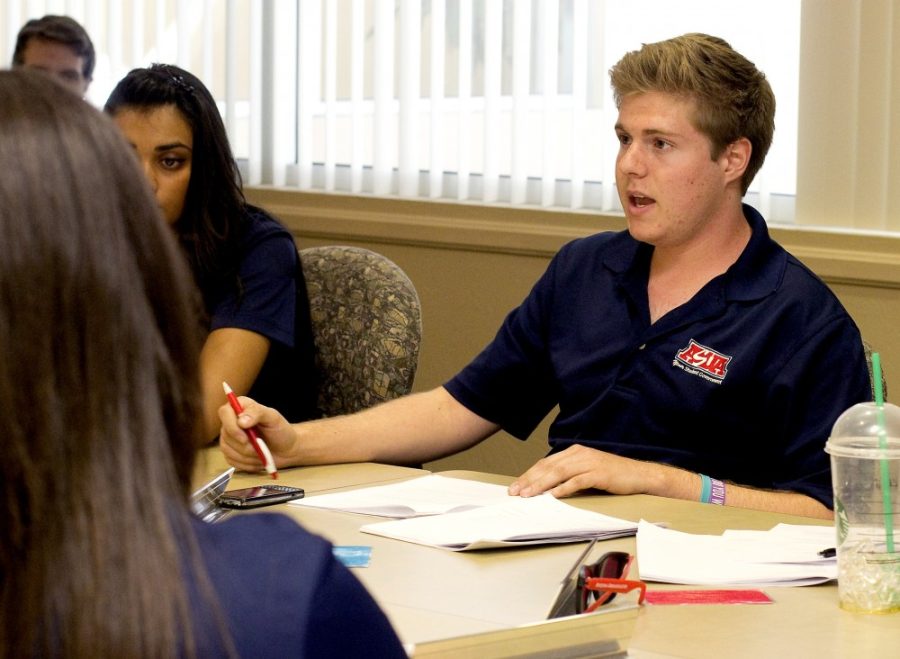In a meeting rushed by an imminent public tuition hearing, the ASUA Senate tabled half of its agenda during its meeting on Wednesday.
The Senate was scheduled to approve or deny changes to both its bylaws and the general bylaws of the Associated Students of the University of Arizona, but ended up shelving action on the former after a drawn-out discussion. Among other changes, the Senate most objected to the reclassification of the current position of vice chair of the Senate as the president of the Senate. Sen. Erik Lundstrom, who compiled the bylaw changes, said renaming the position was necessary in order to hold members of the Senate accountable.
“I do think the Senate needs to check themselves, which is why I think that higher leadership within the Senate makes sense,” Lundstrom said.
Several senators objected to the change because they said it sent the wrong message regarding working relationships within the senate.
“All the senators need to be working as a team, not against each other or above each other,” said senator-elect Claire Theobald.
ASUA President James Allen said he supported the idea of a more clearly defined leadership structure within the Senate.
“The one thing that is unarguable is that if the Senate wants to elect someone within themselves to hold them accountable, that would be a good thing,” he said.
Another point of contention focused on the creation of two new positions within the Senate, a chief senate administrator and a senate aide coordinator. The former would act as the body’s parliamentarian and be responsible for the Senate’s administrative needs, while the latter would manage the application process for senate aides and oversee weekly meetings with those involved in the Senate Aide Program.
Lundstrom said the senate administrator position was necessary because, according to ASUA Bylaws, the Senate has to have a parliamentarian at all of its meetings, which it currently does not. He also said that a senate aide coordinator would help with the professional development goals of the program.
Allen disagreed.
“I don’t think the proposed changes are horrible … but I do think that ASUA has had a problem with administrative bloat,” Allen said. “We don’t need to be creating new positions.”
Allen said he believed the duties of these proposed positions could be filled by those already on stipend with ASUA.
Sen. Jason Brown agreed, saying that he thought it wasn’t necessary to delineate additional staff positions and moved that the two positions be struck from the bylaws. That vote failed.
The senate eventually voted to table further discussion of the changes until its next meeting. Other bylaw changes, however, were approved with virtually no discussion.
Those bylaw changes include the reclassification and reorganization of the ASUA Marketing Department. Under the old bylaws, an executive director and five general directors oversaw marketing in ASUA. The re-branded ASUA Marketing Department more clearly delineates marketing positions. Along with the executive director, ASUA marketing will include a branding director, multimedia director, web development director, communications director and assistants serving under each of those directors.
The bylaw changes also included a provision that requires one of the seven members of the ASUA Appropriations Board, which doles out club funding each year, to be a graduate student. Lundstrom asked if that might be detrimental to graduate students who want to get involved with ASUA. Krystina Nguyen, the incoming executive vice president, said she didn’t think it would and that she would not exclude graduate students from the board should they choose to apply.
“If I can get a graduate student, that would be wonderful,” she said. “But I don’t think it should be a requirement.”
The senate decided to delay discussion of proposed changes to how stipends are distributed. The proposal, as it now stands, would allot an additional $3,450 to fund stipend positions next year.
The next meeting of the ASUA Senate is Wednesday, April 4.








